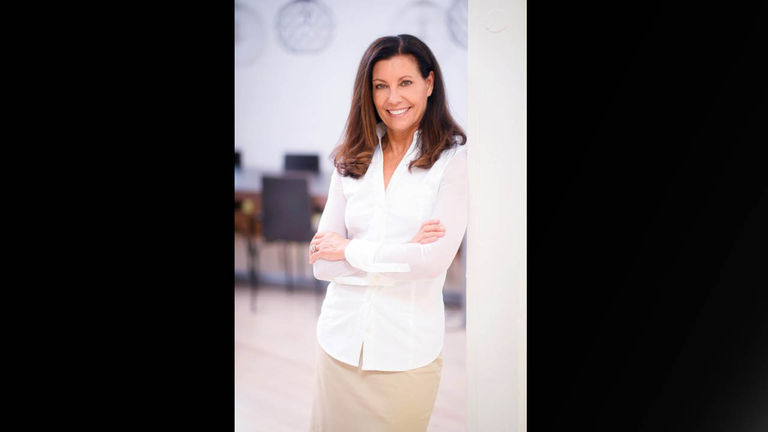The brand-new Wellness Travel University, which launched today, aims to be the most comprehensive wellness travel education available for travel advisors thus far.
Created by Organic Spa Media LTD in alliance with Northstar Travel Group (the parent company of TravelAge West), the e-learning platform offers advisors branded, sponsored courses and an in-depth six-module Gold course, created by wellness experts such as Dr. Melanie Smith, associate professor and researcher from Budapest Metropolitan University’s Institute of Tourism, Leisure and Hospitality.
Advisors will receive an all-encompassing wellness travel/tourism glossary, as well as have access to updated wellness travel content; e-books focusing on wellness travel destinations; and Organic Spa Media LTD’s digital edition library.
The second phase of the launch will include a travel advisor referral program that will allow consumers to search zip codes and access Wellness Travel University-certified advisors as they plan their wellness vacations.
 Bev Maloney-Fischback, CEO, founder and publisher of Organic Spa Media LTD
Bev Maloney-Fischback, CEO, founder and publisher of Organic Spa Media LTD
Credit: Bev Maloney-FischbackWe chatted with Beverly Maloney-Fischback, CEO, founder and publisher of Organic Spa Media LTD, to find out why travel advisors need education when it comes to planning and selling wellness travel.
How is selling a wellness hotel, or a wellness destination, different than putting together other types of vacations?
Wellness travel is a growing category, but it is a specific niche. There are different aspects to wellness, and advisors can benefit from training that helps them understand the range of offerings out there and how to best deliver what clients want and need.
The healthy hotel concept is growing, which means that travelers may be seeking properties that offer nutritious food, enhanced sleep options and fitness activities, but that is a starting point, rather than a holistic wellness experience.
Wellness travel options range from yoga and hiking, to forest-bathing and stargazing, to meditation and detox. Wellness trips may focus on fitness activities, healthy eating, time spent in nature or practicing yoga. The healthy hotel concept is growing, which means that travelers may be seeking properties that offer nutritious food, enhanced sleep options and fitness activities. But that is a starting point, rather than a holistic wellness experience.
How does the course define wellness?
“Wellness” is often confused with terms such as health, well-being and happiness. Health is a state of being, while wellness is the state of living a healthy lifestyle. In other words, wellness refers to an active process of making healthy, proactive life choices leading to an outcome of enhanced well-being.
Can a regular vacation planned by an advisor be a wellness vacation if you add a spa treatment and some hikes? Or is there more to it?
The primary intention of wellness travelers is to feel better and enhance their health, physically, mentally, spiritually, socially or all of the above. A spa treatment and hike can certainly help you feel better, but a wellness vacation is an active pursuit that ultimately leads to a holistic sense of well-being.
Wellness travel is an extremely personal experience, and for some it can be as simple as cutting off from everything and relaxing on the beach. Others may be looking for a fully programmed intense and transformative wellness vacation package. It’s important for agents who want to be successful to know the difference and be aware of the spectrum of offerings.
Can you provide some examples included in the glossary? And some examples of the wellness travel content?
The glossary includes descriptions on everything from acupuncture and jimjilbang (large gender-segregated bathhouses in Korea) to lymphatic drainage and watsu (hydrotherapy). There are e-books featuring roundups of wellness resorts by themes (such as ski spas) or destinations (such as the Caribbean); access to Organic Spa Magazine’s annual Wellness Travel Guide; and a section on news and trends in the wellness industry.
Do the courses mainly educate advisors on what wellness is (and examples of wellness travel experiences), or do they also teach how to sell wellness?
All three. The first module is dedicated to defining wellness and wellness tourism today, as there are many ways to look at this sector and through various lenses. We teach agents how to first understand the sector, and then support them with tools on how to sell wellness travel solutions to their customers.
Once our database is populated, we will be promoting Wellness Travel University to Organic Spa Media’s global audience of wellness-seeking consumers — as well as promoting the site to other wellness lifestyle media platforms — who will be able to seek and find agents with the search function on the platform.
There is education and examples, but the courses teach how to sell wellness in the sense that they provide advisors with insight on how to drill down on what their clients are looking for and equip them with tips and techniques on how to deliver it.
Is there a certificate that advisors receive after completing the courses? Is there a test?
Yes, advisors need to take, pass and complete the six-module Gold course before they gain access to any of the branded specialty courses. They get a certificate upon completion and are recognized with a Wellness Travel University Gold emblem in their profiles on our advisor page and in our database.
How else can travel advisors benefit from Wellness Travel University?
Once our database is populated, we will be promoting Wellness Travel University to Organic Spa Media’s global audience of wellness-seeking consumers — as well as promoting the site to other wellness lifestyle media platforms — who will be able to seek and find agents with the search function on the platform.
This is an incredible bonus, and opportunity, for the agents that are Wellness Travel University certified, and in our database to grow and build their businesses. Also, we plan to develop wellness travel focused webinars and in-person events in 2022.
The Details
Wellness Travel University